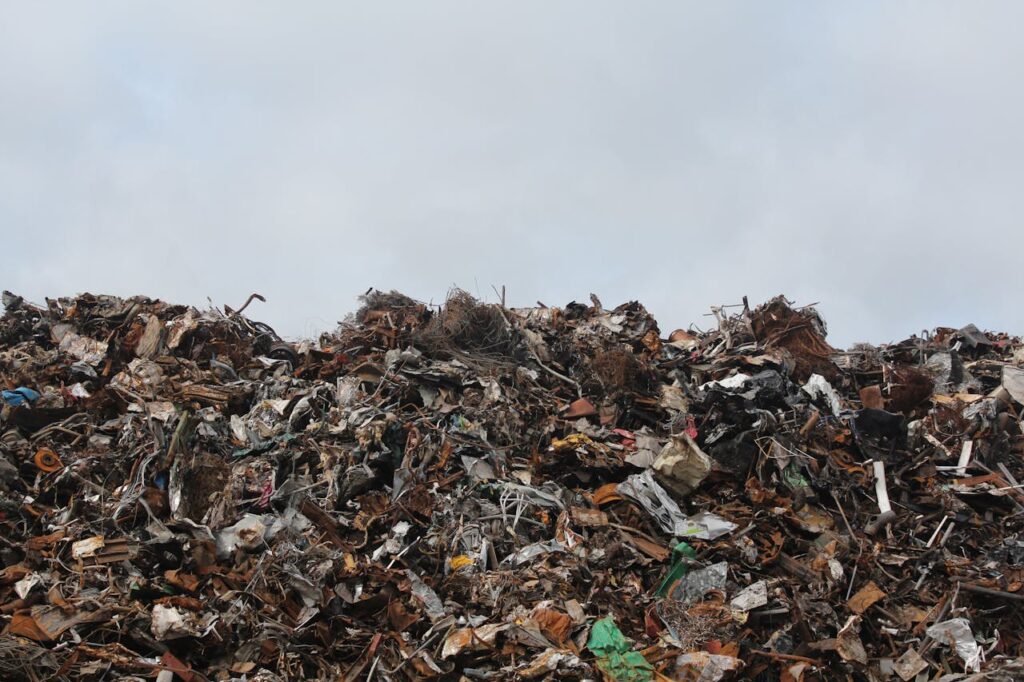Introduction
Scrap yards play a pivotal role in the metal recycling industry, serving as essential hubs where discarded metals are collected, sorted, and processed for reuse. By recycling metals, scrap yards help conserve natural resources, reduce environmental impact, and support a sustainable economy. Understanding the most commonly recycled metals and their applications can shed light on the significant contributions scrap yards make to various industries.

Recycling Metals
Recycling metals is crucial for conserving resources, reducing environmental impact, and promoting sustainability. Here’s a look at the top 10 most recyclable metals and their widespread applications across various industries.
1. Aluminum
Aluminum is one of the most recyclable metals, capable of being recycled indefinitely without losing its properties. Commonly found in beverage cans, automotive parts, and construction materials, recycled aluminum saves up to 95% of the energy required to produce new aluminum from raw materials. It’s widely used in the packaging, transportation, and construction industries.
2. Steel
Steel is another highly recyclable metal, with about 70% of global steel production coming from recycled sources. It’s used extensively in construction, automotive manufacturing, appliances, and tools. Recycling steel conserves iron ore, reduces greenhouse gas emissions, and saves energy, making it a cornerstone of sustainable practices in heavy industries.
3. Copper
Copper is highly valued for its electrical conductivity and is commonly recycled from wiring, plumbing pipes, and electronic devices. The recycling process retains its high conductivity, making it essential for electrical applications, telecommunications, and renewable energy systems. Recycling copper reduces the need for mining and lowers environmental degradation.
4. Brass
An alloy of copper and zinc, brass is commonly used in plumbing fixtures, musical instruments, and decorative items. Its recyclability makes it a popular choice in manufacturing and construction. Recycled brass maintains its durability and corrosion resistance, reducing the demand for virgin copper and zinc.
5. Lead
Lead is predominantly recycled from automotive batteries, shielding materials, and cable sheathing. Its ability to be recycled multiple times without losing quality makes it crucial in the automotive and energy storage industries. Recycling lead prevents environmental contamination and reduces the health risks associated with lead mining and processing.
6. Zinc
Zinc is often recycled from galvanized steel, die-casting alloys, and batteries. Its primary use is in galvanizing steel to prevent rust, extending the lifespan of steel structures. Recycled zinc is also used in brass production and various chemical applications. Recycling zinc conserves resources and reduces the environmental impact of mining.
7. Nickel
Nickel is a key component in stainless steel and other corrosion-resistant alloys. It’s recycled from batteries, electronics, and industrial equipment. Recycled nickel retains its strength and resistance to high temperatures, making it valuable in the aerospace, automotive, and energy sectors. Recycling nickel helps reduce reliance on mining and lowers carbon emissions.
8. Tin
Tin is commonly recycled from food cans, electronic components, and coatings. It’s mainly used in the production of solder, tinplate, and various alloys. Recycled tin maintains its quality and reduces the need for new tin mining, which often involves harmful environmental practices.
9. Gold
Gold is a precious metal recycled from jewelry, electronics, and dental materials. Despite its high value, it is crucial for its electrical conductivity and resistance to corrosion, making it indispensable in the electronics industry. Recycling gold reduces the environmental and social impacts associated with gold mining, including habitat destruction and pollution.
10. Platinum
Platinum is a rare and valuable metal recycled from catalytic converters, electronics, and medical devices. Its high melting point and resistance to chemical reactions make it essential in the automotive, jewelry, and chemical industries. Recycling platinum helps conserve this scarce resource and reduces the environmental impact of mining.
Conclusion
Recycling metals not only conserves natural resources but also significantly reduces energy consumption and environmental pollution. These top 10 recyclable metals play vital roles in various industries, from construction and automotive to electronics and energy. By promoting and practicing metal recycling, we can move towards a more sustainable and environmentally-friendly future.
Leave a Reply